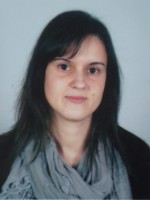resumo
Knowledge regarding the high pressure phase behavior of CO2 mixtures is of primary importance for designing, operating and optimizing many industrial processes, such as supercritical fluid extraction for pharmaceutical, food and biodiesel industries and oil recovery enhancement through CO2 flooding. In the present work, it is investigated how the CPA EoS (Cubic-Plus-Association equation of state) can be used for an adequate description of the VLE of an extensive series of CO2 binary systems containing n-alkanes, n-alcohols, esters and n-acids, in a broad range of temperatures and pressures. These families constitute a series of non-self associating, associating and cross-associating components whose potential associative interactions with CO2 are evaluated here. A detailed investigation regarding the differing behavior of CO2 depending on the nature of the second component and how the CPA EoS can best describe them is presented here, namely explicitly considering the CO2 association and also evaluating also its different association schemes. It will be shown that it is important to consider CO2 self- and cross-association to describe the VLE of n-alkane and small alcohol/CO2 systems. However, it is not necessary to consider CO2 association when dealing with systems of heavy alcohols, esters or acids. The CPA EoS provides very good results for the extensive range of CO2 binary systems considered here using, for most of them, single, small, temperature independent, positive and chain length dependent binary interaction parameters. (C) 2010 Elsevier B.V. All rights reserved.
palavras-chave
VAPOR-LIQUID-EQUILIBRIA; SUPERCRITICAL CARBON-DIOXIDE; FLUID-PHASE-EQUILIBRIA; ENHANCED OIL-RECOVERY; SAFT GC-SAFT; N-ALKANES; AB-INITIO; CPA EOS; ELEVATED PRESSURES; AROMATIC-HYDROCARBONS
categoria
Chemistry; Engineering
autores
Oliveira, MB; Queimada, AJ; Kontogeorgis, GM; Coutinho, JAP
nossos autores
agradecimentos
Financial support was provided to LSRE by FEDER/POCI/2010. Mariana B. Oliveira acknowledges Fundacao para a Ciencia e a Tecnologia through her Ph.D. (SFRH/BD/29062/2006) scholarship. A.J. Queimada acknowledges support from POCI/N010/2006.



